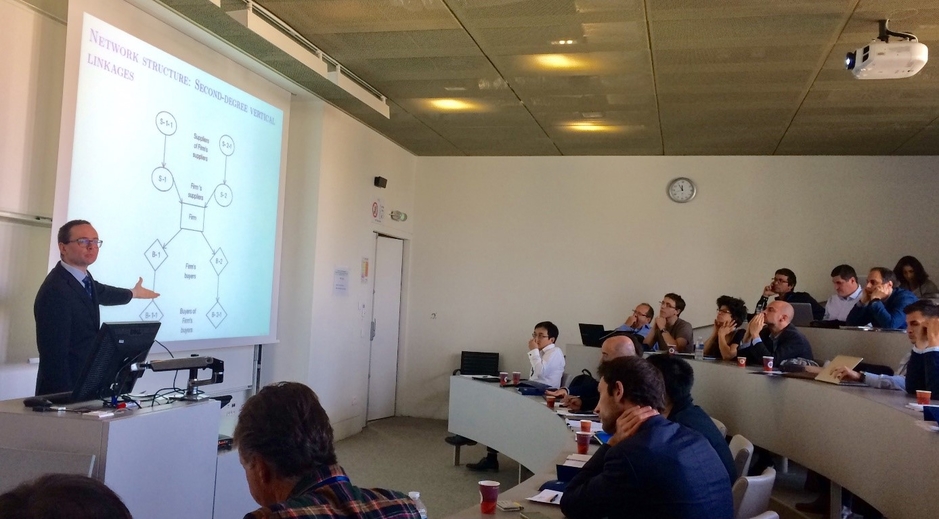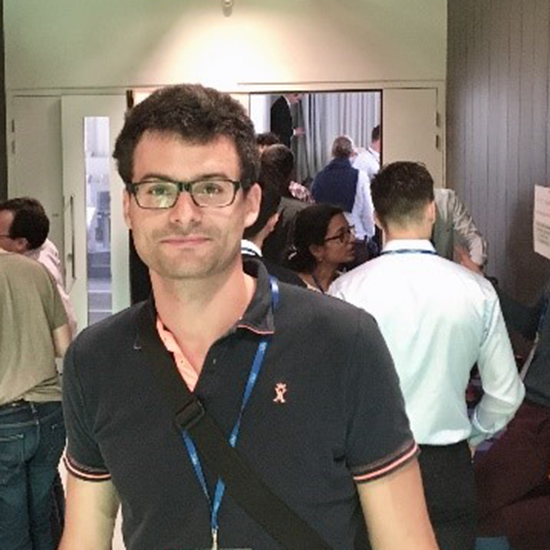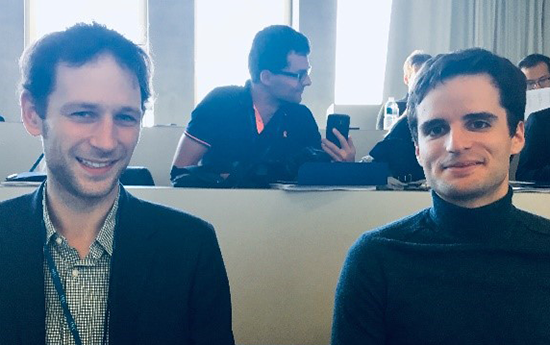Banking, Finance, Macroeconomics and the Real Economy
A year after the fifth edition, the HEC campus hosted its annual workshop centered on Finance and Economics on October 19. Co-organized by HEC’s Associate Professor of Finance Evren Ors and Associate Professor of Economics, Tomasz Michalski, its theme was once again “Banking, Finance, Macroeconomics and the Real Economy”.

“I was really impressed by the quality of the research papers and by the broad scope of topics,” commented Christophe Pérignon, Associate Dean for Research at the business school. “These included cutting-edge research presentations on bitcoin pricing, how real-estate bubbles in China can divert capital away from manufacturing firms, and how the banking crises can lead to racism and totalitarianism. It is great for our Ph.D. students to be exposed to such creative and high-quality research."
Evren Ors and Tomasz Michalski brought together 11 speakers, all researchers based in top European universities (Ecole Polytechnique, Imperial College, London School of Economics, Stockholm School of Economics, University of Geneva, University of Mannheim, and University of Zurich, as well as HEC Paris). They showcased diverse and stimulating projects around the effects of banking, financial intermediation, finance and macroeconomics. The daylong forum for exchange featured specialists in fields as diverse as economic history and finance theory. “These were very innovative and interesting research papers,” added Pérignon, “all of which are highly likely to be published in top academic journals, which, by the way, have acceptance rates below 2% to 3%.”
Global Impact of Financial Crises
Many of the papers centered on challenges to national and international economies when countries face major financial turmoil. Claudia Custodio, Associate Professor of Finance at Imperial College, explained the economic costs of financial distress, whilst the Professor of Economics at Ecole Polytechnique, Isabelle Méjean, described how foreign shocks affect the domestic economy. The co-organizers Tomasz Michalski and Evren Ors jointly presented their research, written together with Banu Demir-Pakel (Bilkent University) and Beata Javorcik (University of Oxford), which studies the propagation of an economic shock through the production network. “We show that even small economic shocks propagate through production networks” , said Tomasz Michalski. “Firms with low liquidity are primarily responsible for transmitting the shock through the network.”
Could cryptocurrency pricing be a way of offsetting the consequences of such financial instability? Bruno Biais’ work on “Equilibrium Cryptocurrency Pricing” explored its arrival in the finance world over the past five years. The recently-appointed Professor of Finance at HEC Paris left the question open as he presented his research which proposes a way to model bitcoin pricing. The large negative and positive returns on the bitcoin was explored in a presentation which included the 2013 quote by Alan Greenspan: “You have to really stretch your imagination to infer what the intrinsic value of Bitcoin is. I haven’t been able to do it. Maybe somebody else can.”
From Financial Instability to Fascism
Financial uncertainty, instability, and its consequences were cast in a historical light by Joachim Voth. The Professor of Economics at the University of Zurich, showed evidence that links the real effects of Germany’s banking crisis in 1931 with the rise of the extremism. This presentation generated a lively discussion during the workshop. The main take-away from the article is that the financial crisis led to an increase of unemployment, lower wages at the firms starved from credit, and then to an increase in radical votes at the affected cities.

Leaping forward to the 21st century, François Derrien shared his study on how a combination of an aging population and a young labor force affects innovation in business. The HEC Paris Professor of Finance elaborated: "We study how the average age of the local labor force affects corporate innovation. Focusing on the native-born population, we show that firms located in younger areas are significantly more innovative. This goes beyond the effect of the age of inventors or firms on innovation: All else equal, inventors are more innovative in younger environments (i.e. where the local population is young)."

Resounding Success
The workshop was source of lively debates and exchange between academics and students. “This kind of event allows participants, including PhD students, to meet prominent researchers, to showcase the latest research in our discipline,” said Evren Ors at the end of the conference. “They get precious feedback on their on-going projects. What is great about being an academic is that we are always eager to learn about new research results. We are delighted to present our own findings in order to be able to further improve them given the feedback that we receive. ” Pointing to the large delegation of visiting researchers from the Banque de France (including Matthias Lé and Paul Beamont) and Eric Vansteenberghe, Tomasz Michalski added: “[The workshop] is also an opportunity for our PhD students not only to get new ideas for their own research project, but to meet their future co-researchers or even employers. As for the Banque de France, they value these exchanges since the subjects we treat are very relevant to their work.” »
Next year’s workshop is scheduled for the fall of 2019.